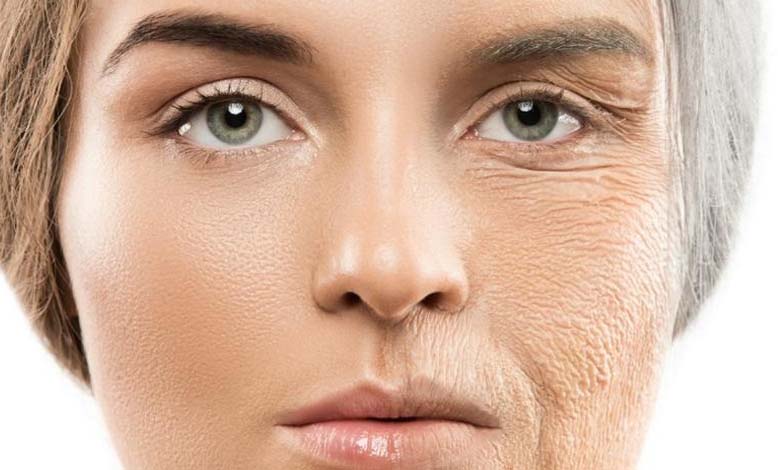Freezing Time: Discovery of New Anti-Aging Hormones

A groundbreaking study, recently published on the Science Alert website, has unveiled a significant hormonal breakthrough that could completely change the way we approach the fight against skin aging. This study highlights a set of hormones that possess the ability to slow down the deterioration of the skin caused by the natural aging process, and they also hold the potential to repair some of the visible effects of aging. These findings are particularly exciting, as they could lead to the development of highly effective treatments aimed at maintaining youthful skin for much longer.
-
Weight Loss Medications: A Revolution in Anti-Aging
-
A new important discovery for an anti-aging drug
The results from this study suggest that the benefits of these hormones extend far beyond just cosmetic improvements; they could also play a crucial role in enhancing the overall health of the skin, which is the body’s first line of defense against a variety of external environmental factors, such as pollutants, harmful UV rays, and other stressors. The skin is not just an outer covering for the body; it is an incredibly complex and active organ that plays a pivotal role in maintaining the overall well-being of the body. It serves as a barrier to protect internal organs from potential damage while also acting as a major player in regulating body temperature and fluid balance.
According to the study, the skin is more than just a passive layer; it actively produces its own hormones that directly influence its appearance, texture, and function. These hormones impact not only how the skin looks but also how it reacts to external stimuli, and how it ages over time. This new understanding is shifting the perspective of dermatology, revealing that the skin’s aging process is influenced by a variety of internal factors, including hormonal regulation.
-
“The Anti-Aging Benefits of Collagen for Women’s Skin: How it Helps Resist Wrinkles”
-
With Winter Approaching… 5 Tips for Treating Dry Skin
Professor Markus Böhm, who is the lead author of this study and a researcher at the University of Münster in Germany, emphasized that some hormones, like estrogens and retinoids, are already being used in dermatology to address skin aging. However, this new study has brought attention to other promising compounds that could play an even more significant role in the rejuvenation of aging skin. One of the most notable hormones discovered is melatonin, which has long been associated with regulating sleep patterns. Melatonin, however, has far more than just sleep-related benefits. It is recognized for its powerful antioxidant and anti-inflammatory properties, which help protect the skin from oxidative stress caused by UV radiation. Furthermore, melatonin has shown the remarkable ability to repair DNA damage that is inflicted on skin cells by prolonged sun exposure. This could have profound implications in reducing the visible signs of aging, such as fine lines, wrinkles, and dark spots caused by sun damage.
In addition to melatonin, the study has also highlighted other hormones, such as insulin-like growth factor (IGF-1) and α-MSH (alpha-melanocyte-stimulating hormone), which are also critical players in the skin’s aging process. These hormones work by stimulating the production of collagen, which is the protein responsible for maintaining the skin’s firmness and elasticity. Collagen is essential in maintaining the skin’s structure and strength, and its decline over time leads to sagging and the formation of wrinkles. IGF-1 and α-MSH also play an important role in reducing the appearance of sunspots and slowing down the graying of hair, both of which are common signs of aging. By boosting the body’s natural collagen production and promoting a healthy skin structure, these hormones can significantly improve the overall texture and appearance of the skin.
The researchers behind this study believe that gaining a deeper understanding of how these hormones interact with the skin could open the door to the development of groundbreaking treatments that could preserve skin vitality from within. Rather than relying solely on external cosmetic products or superficial treatments, these new hormone-based therapies could work on a much deeper level, offering a more sustainable and long-term solution for skin aging.
-
The nose and ears stand out: why do facial features appear larger with age?
-
Unexpected ways summer can damage your skin
Professor Böhm further emphasized the significance of this discovery, stating, “We have a golden opportunity to turn these discoveries into practical solutions to slow down aging.” His words highlight the immense potential that these findings hold for the future of skincare. If these breakthroughs can be translated into real-world applications, we could see the emergence of highly effective anti-aging treatments that target the root causes of skin aging at a molecular level.
In the coming years, researchers will focus on further exploring the potential of these hormones and working on transforming them into safe, effective skincare treatments that can be used by people of all ages. These treatments could potentially be incorporated into a variety of products, including creams, serums, and even oral supplements, offering a multifaceted approach to slowing down the visible effects of aging. The goal is to create solutions that not only preserve the skin’s appearance but also enhance its overall health, providing long-lasting benefits.
If these ongoing research efforts are successful, we could be standing on the threshold of a new era in cosmetic science, one where “freezing time” becomes a tangible scientific reality, and not just a far-off dream. The implications of this discovery are profound, as it could pave the way for a future where the aging process is not something that we merely accept, but something that can be actively slowed down, or even reversed, with the help of innovative, scientifically-backed treatments. The prospect of maintaining youthful, healthy skin for much longer than previously thought is becoming more and more achievable with each passing year.
Thus, as research continues, we may very well find ourselves entering a new age of skincare, where advanced hormonal therapies allow us to not only combat the signs of aging but also protect our skin in ways that were previously unimaginable. If these breakthroughs lead to successful, accessible treatments, the dream of “freezing time” could soon become a reality for people all around the world.












